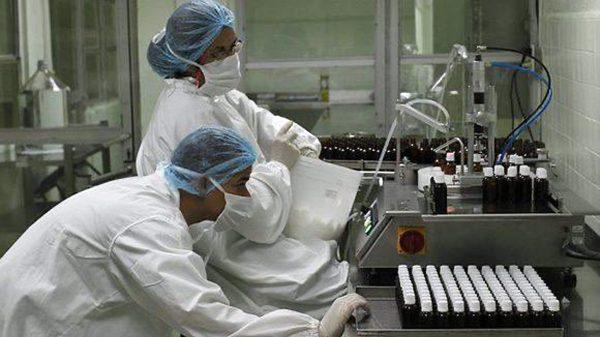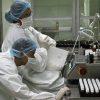His Excellency Ambassador Antony Stokes LVO attended a presentation at the Center for Genetic Engineering and Biotechnology (CIGB) to learn of the progress of five collaborative projects supported by the United Kingdom.
The Ambassador was received by Dr. Eulogio Pimentel, General Director of the CIGB, and Dr. Mitchel Valdés-Sosa, Director at the Neuroscience Center (Cneuro).
At Friday’s presentation at the CIGB, the Ambassador learned of the development of clinical trials of the CIGB2020 vaccine, research on the CIGB-300 antiviral originally used in the treatment of cervical cancer, lung cancer, and leukemia, and diagnostic tests for COVID-19.
The Ambassador also received an update on the progress of two UK-Cuba collaborative projects.
These two projects with the Neuroscience Center involve the diagnosis and treatments to reduce brain damage caused by the coronavirus and the use of non-invasive ventilators based on the design from the University College London.
The collaborative project for non-invasive ventilators will include training for engineers and manufacturing in Cuba.
The Sancti Spíritus Genetic Engineering Center and the Immunoassay Center in Havana are working with British support to investigate coronavirus diagnostic systems that are cheaper than the current PCR tests.
The research for the acquisition of multiple reagents and materials is funded by the International Program of the Foreign, Commonwealth & Development Office (FCDO).
The products will be for use in Cuba as well as international export.
Ambassador Stokes expressed an interest in future commercial agreements with Cuba and in attracting more investment to BioCubaFarma.
In 2019, the CIGB exported pharmaceuticals to 36 countries. This year, despite trade limitations, the institution has managed to export to 28 other countries.
The Neuroscience Center known for its achievements in Alzheimer’s research and brain mapping, has maintained relationships with academics from the University of Oxford and scientists in Manchester and Edinburgh.
As the consequences of COVID-19 and its effects on the brain are still unknown, the study is expected to take two years for completion.
These five UK-Cuba collaborative projects were signed by the British embassy, the CIGB and the Neuroscience Center last October.
“Never have our intensive care rooms been exceeded capacity. But it is preferable to prepare for the worst, ”said Dr. Valdés-Sosa.
Ambassador Stokes expressed the interest of “a group of companies and businesses in the UK that want to do more in Cuba and strengthen our commercial ties.”
Last August BioCubaFarma and the British company SG Innovations Limited, formed the new joint venture firm, BioFarma Innovations. BioFarma Innovations is involved in bringing Cuban biopharmaceuticals to European and Commonwealth countries.
Ambassador Antony said he is delighted that, “we can support this collaboration in the fight against the pandemic while taking advantage of international cooperation… Both institutions bring great value and I am proud that we can strengthen our ties and work together in the fight against COVID-1.”
“We are seizing the opportunity of the crisis. The crisis can be the occasion to promote work and cooperation between institutions and governments. I am very happy that, as the UK embassy, we can support this collaboration on specific projects in different aspects of the fight against the pandemic, and at the same time, take advantage of the bilateral and international cooperation between countries,” said Ambassador Stokes, after the presentation at the CIGB.

From our staff writers and editors.














